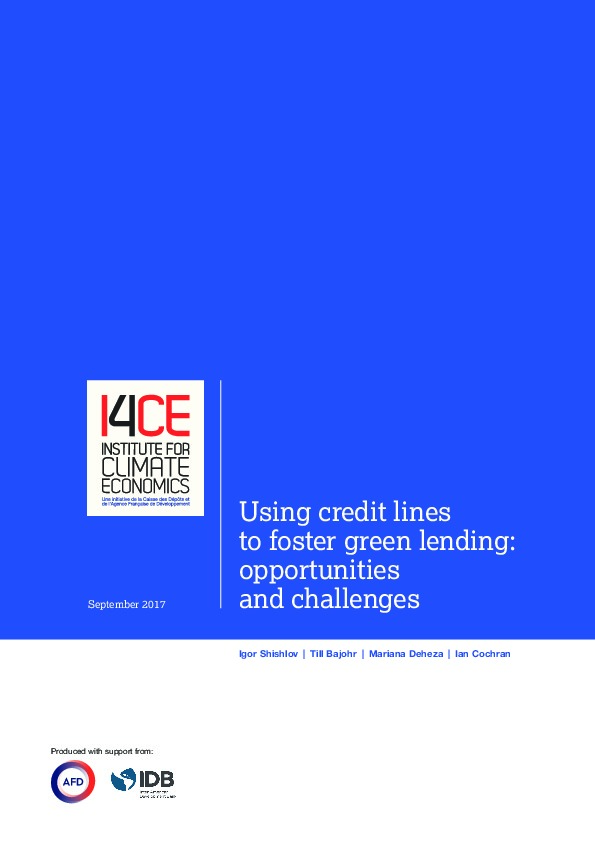Using credit lines to foster green lending: opportunities and challenges
Green credit lines extended by public finance institutions are a financial intermediation tool with a twofold objective.
- First, they aim at fostering lending to projects with environmental benefits often referred to as “green lending”.
- Second, they aim at building capacity in local financial institutions to expand the green lending market after the credit line is closed.
These credit lines may include advantageous financial conditions, such as reduced interest rates, longer tenors, increased grace periods or incentive payments. They may also include technical assistance aimed at building the capacity of local financial institutions to provide loans to green investment projects and/or building capacity of project developers to structure investment proposals.
This scoping study aims at identifying the opportunities and the challenges related to the deployment of credit lines to support the low-carbon climate-resilient transition in developing countries. The first part of this report summarizes the market barriers that inhibit green lending in developing countries. Second, diverse characteristics and types of green credit lines are described and their current uses by major public institutions are presented. Third, the conceptual advantages of this instrument and its potential to address the barriers to green lending are explored. The final section of the report looks at the limitations and challenges to the deployment of green credit lines and introduces questions for future research.
The report demonstrates that credit lines, and more generally financial intermediation instruments, can be useful tools in addressing some of the supply- and demand-side barriers to green lending. Nevertheless, barriers related to the general investment environment require broader policy interventions and usually cannot be tackled by financial intermediation instruments alone. Credit lines are therefore not a “silver bullet”, but rather one component of a broader support package tailored to each market that may include such tools as guarantee schemes and insurance mechanisms. Moreover, challenges remain regarding the long-term contribution of this instrument to sustained green lending practices after the closure of a given credit line, the efficiency of funds’ utilization and the evaluation of its environmental performance. These questions require further investigation in future studies.
A short version of this report is available in Spanish here.
